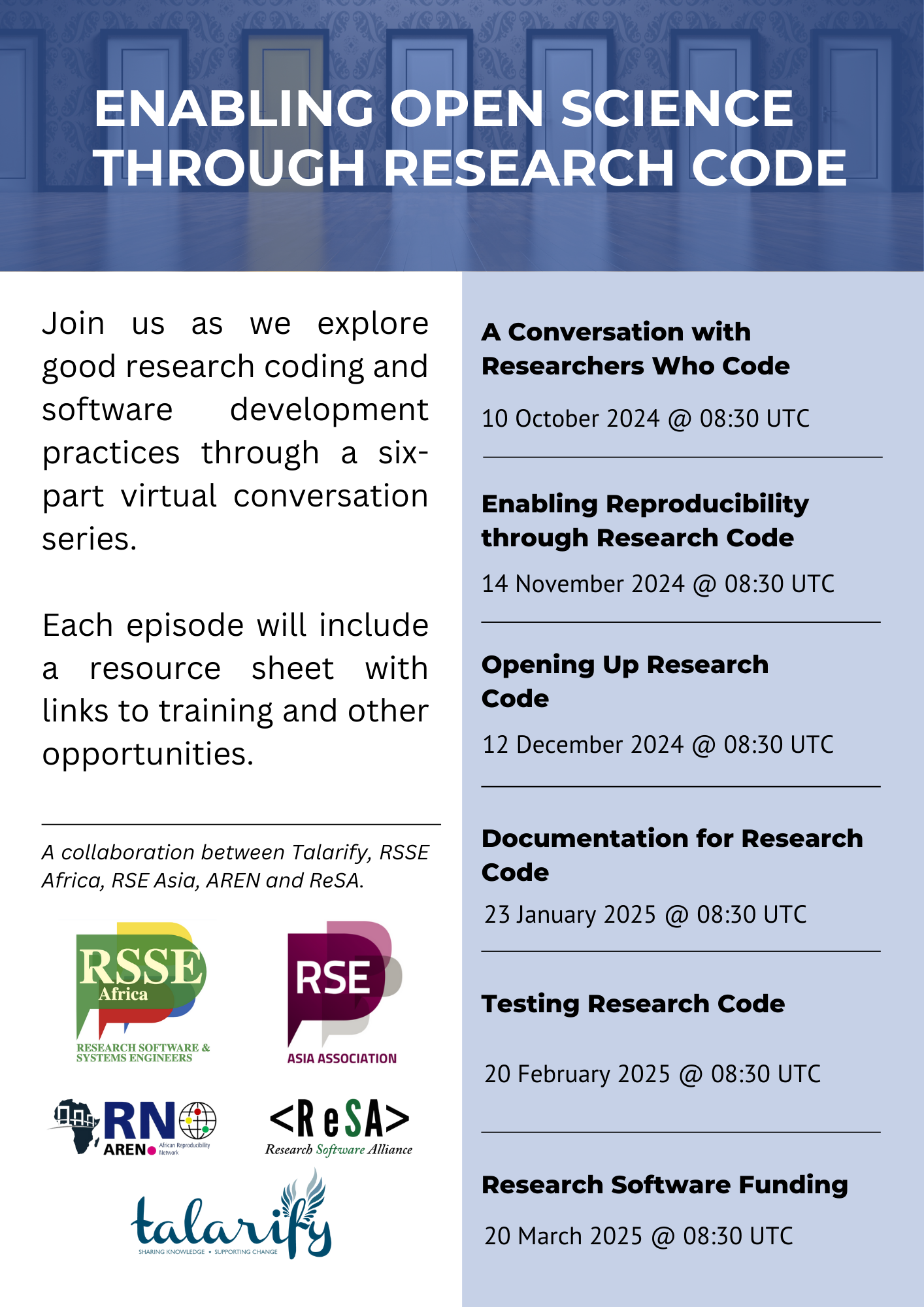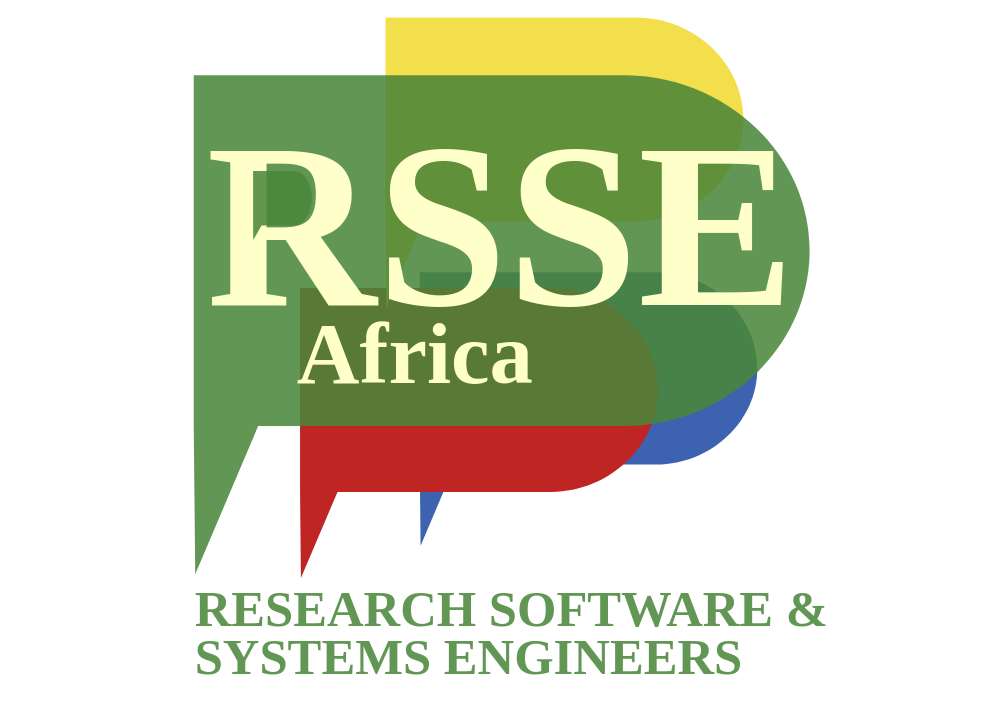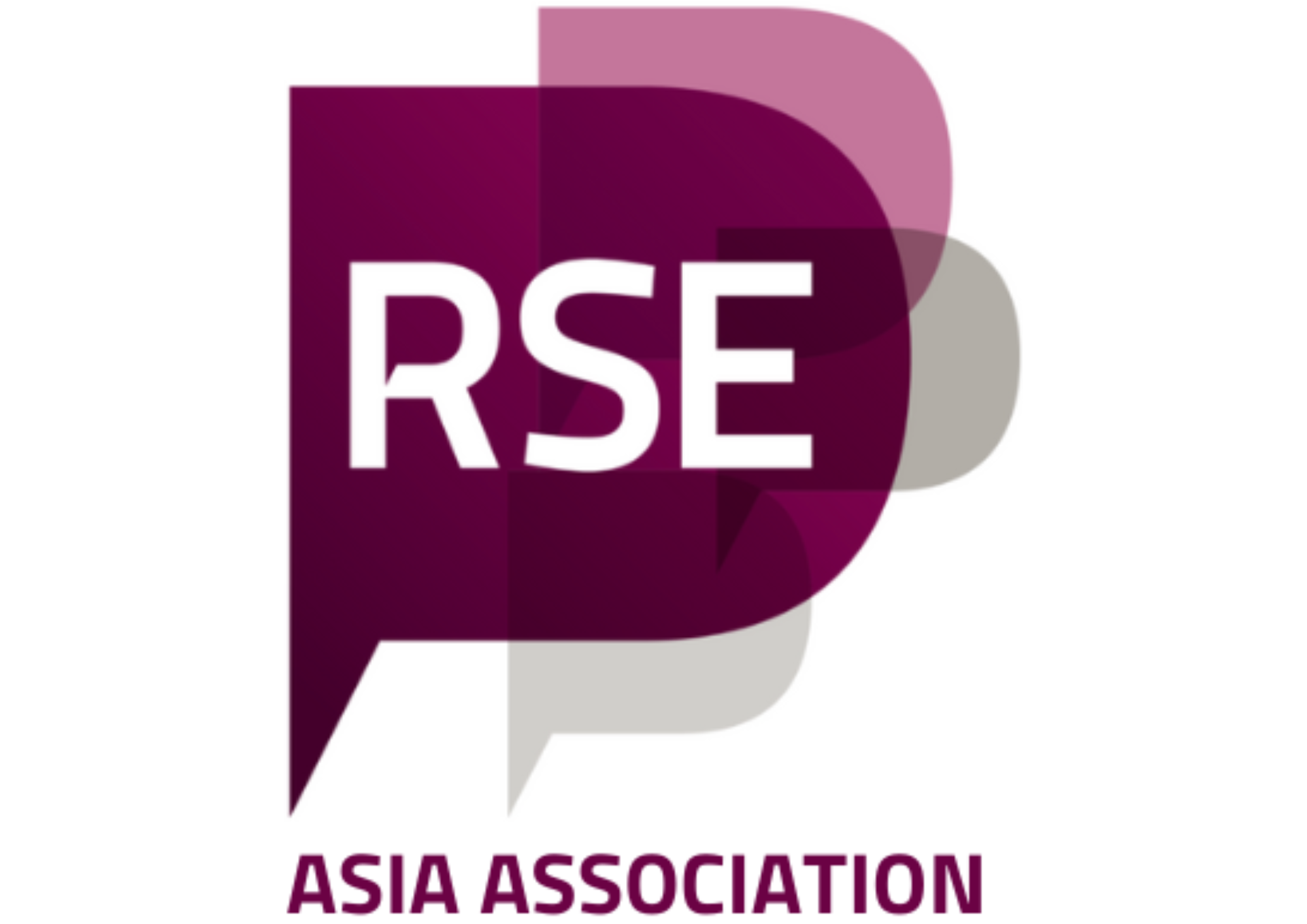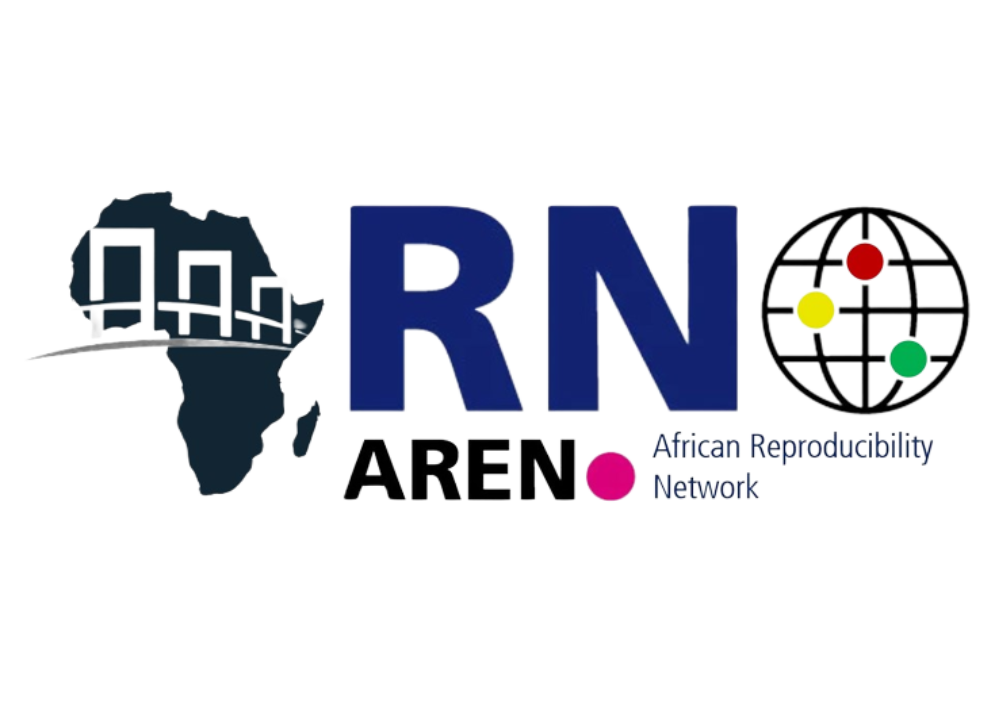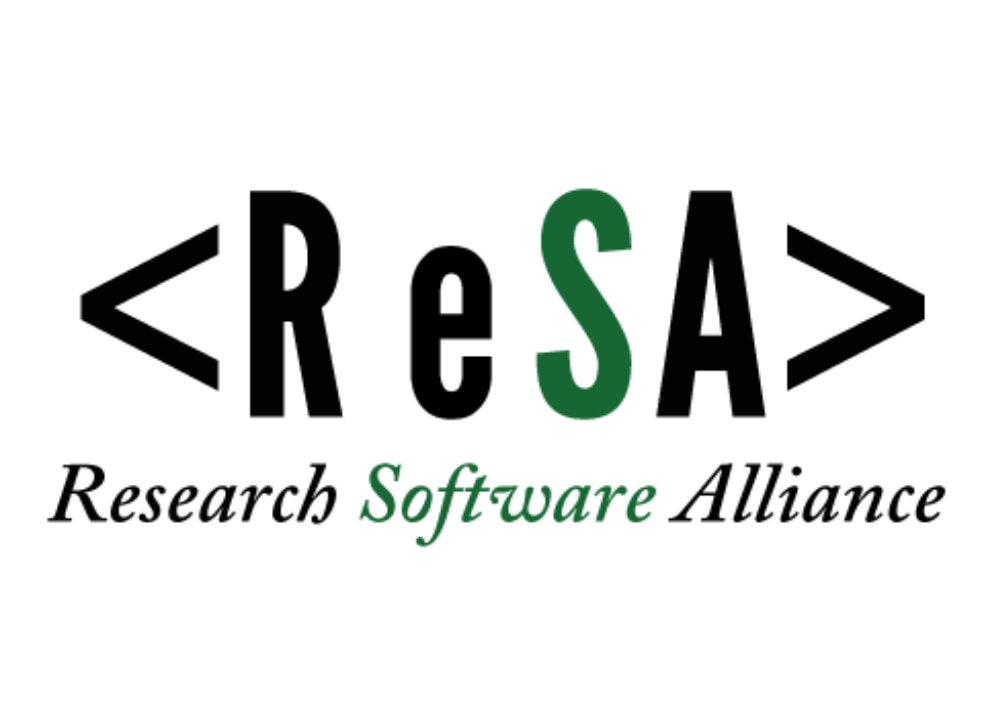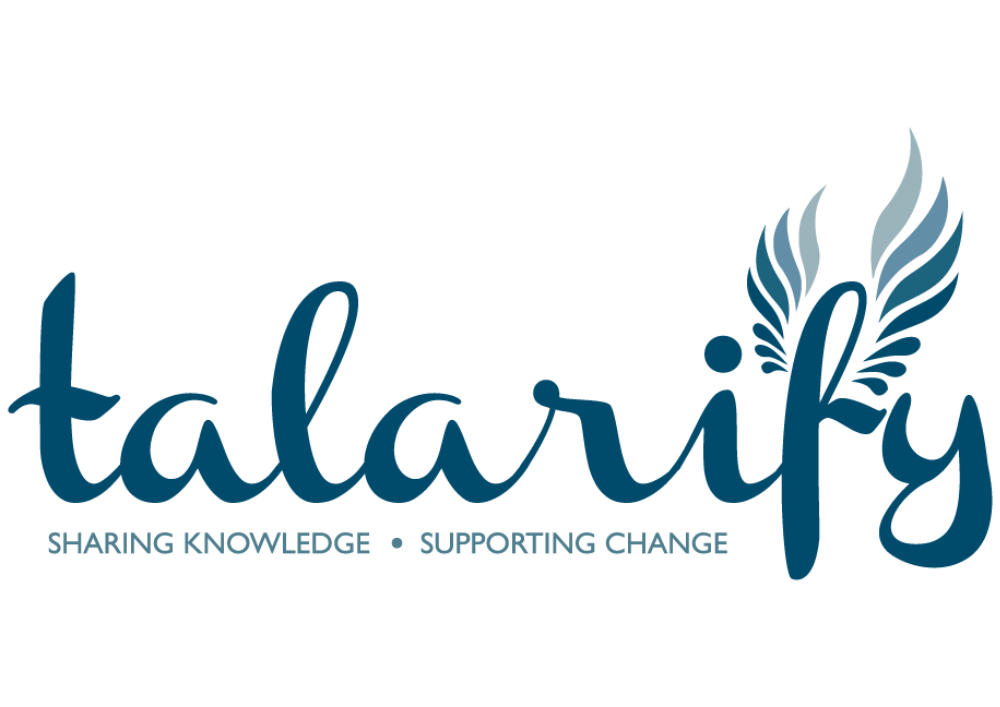Enabling Open Science Through Research Code
Are you a researcher who writes code as part of your work? Join us for the upcoming six-part series to learn good practices, grow your network, and showcase your work!
Did you miss the first series? Want to be notified when the next episodes will kick off? Sign up below!
- You can unsubscribe anytime.
- We will only contact you about upcoming events under this initiative.
- We will not share your contact details with anyone.
Upcoming Episodes
Register today to join the conversations!
Past Episodes
If you missed it, you can still access recordings and resources!
10 October 2024 @ 08:30 - 10:00 UTC (find your local time here)
* Our inaugural meetup coincided with International Research Software Engineering Day!
14 November 2024 @ 08:30 - 10:00 UTC (find your local time here)
12 December 2024 @ 08:30 - 10:00 UTC (find your local time here)
23 January 2025 @ 08:30 - 10:00 UTC (find your local time here)
20 February 2025 @ 08:30 - 10:00 UTC (find your local time here)
20 March 2025 @ 08:30 - 10:00 UTC (find your local time here)
Acknowledgements
Brainstorming and Inspiration from the African Reproducibility Network
In preparation for this series we spent several hours brainstorming with the co-founders of the African Reproducibility Network Lamis Elkheir and Emmanuel Boakye. Both Lamis and Emmanuel have extensive experience in creating accessible communities and we hoped to learn from their successes and challenges. We are tremendously greatful for their input, and even though we cannot implement all the ideas we came up with due to resource constraints, we hope to explore opportunities to co-organise more such events in the near future.
Inspiration and Training Resources from CodeRefinery
The series agenda was inspired by content from CodeRefinery. CodeRefinery is a project within the Nordic e-Infrastructure Collaboration.
They offer training opportunities to researchers from Nordic research groups (but aim to expand beyond Nordics) to learn basic-to-advanced research computing skills and become confident in using state-of-the-art tools and practices from modern collaborative software engineering.
They also develop and maintain training material on software best practices for researchers that already write code. Their material addresses all academic disciplines and tries to be as programming language-independent as possible.
View their lessons, mostly developed under open licenses (e.g. CC-BY) on their website.
